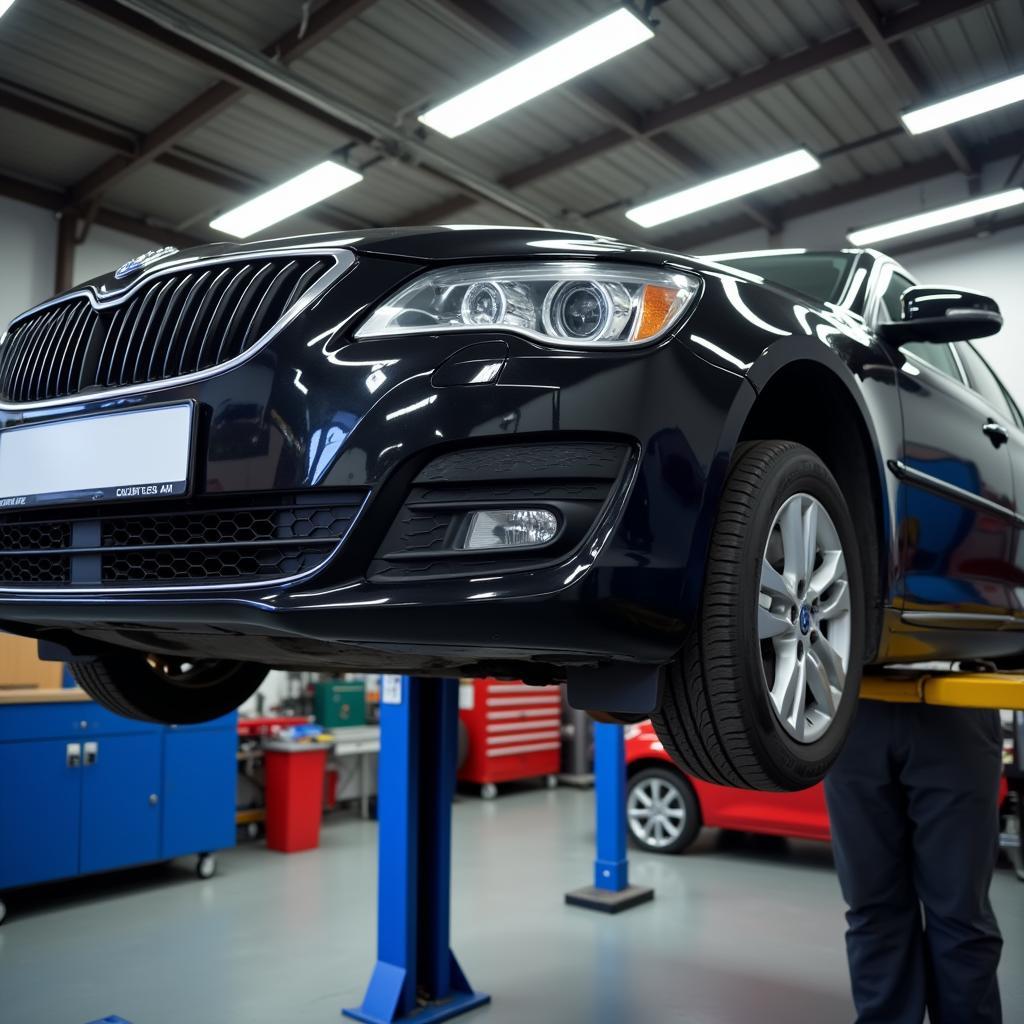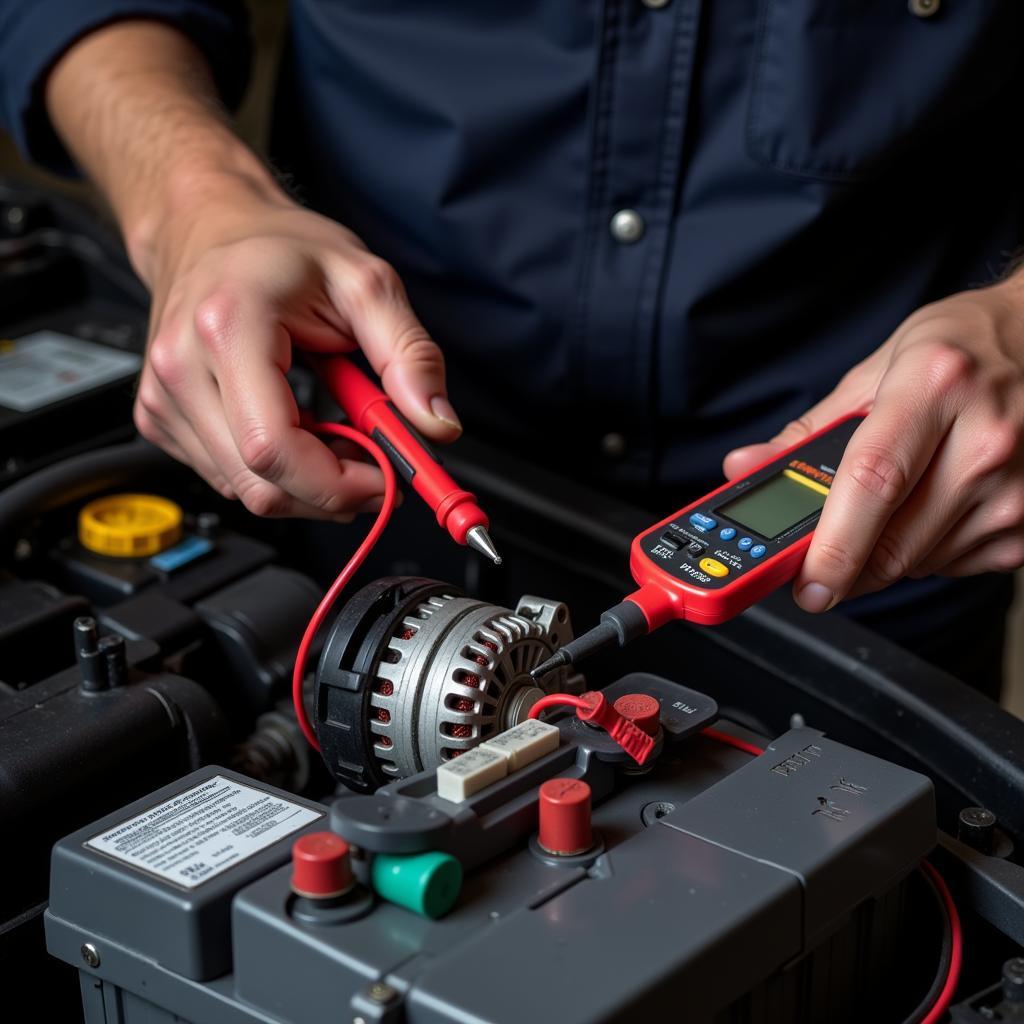If you’re driving your 1998 Toyota Camry and the brake warning light flickers on and off, you’re not alone. This is a relatively common issue in this model year, and it can be caused by a variety of factors. While it might seem alarming, it doesn’t necessarily mean your brakes are about to fail. However, it’s crucial to investigate the issue as soon as possible to ensure your safety and avoid potential problems down the road.
Common Causes of an Intermittent Brake Warning Light in a 1998 Toyota Camry
Here’s a breakdown of some of the most frequent culprits behind that pesky flashing light on your dashboard:
-
Low Brake Fluid: This is the most common reason for the brake warning light to come on. If the brake fluid level is low, it could be due to worn brake pads or a leak in the brake system.
-
Faulty Brake Light Switch: The brake light switch is responsible for turning on your brake lights when you press the brake pedal. If it’s faulty, it can also trigger the brake warning light.
-
Worn Brake Pads: As your brake pads wear down, the brake fluid level in the master cylinder drops. If the pads get too thin, the warning light might come on.
-
ABS Issue: While less common in a 1998 model, a problem with the Anti-lock Braking System (ABS) can also illuminate the brake warning light. This could be due to a faulty sensor or a problem with the ABS module.
-
Loose or Corroded Wiring: Over time, the wiring in your car can become loose or corroded. This can cause all sorts of electrical gremlins, including a flashing brake warning light.
Diagnosing the Problem
Before you start tearing into your Camry’s brake system, it’s essential to diagnose the problem properly.
-
Check the Brake Fluid: Pop the hood and locate the brake fluid reservoir. The reservoir is usually translucent, allowing you to see the fluid level without removing the cap. Ensure the fluid level is between the “Min” and “Max” lines.
-
Inspect the Brake Pads: If you’re comfortable doing so, you can remove a wheel and visually inspect the brake pads. If they look excessively thin (less than 1/4 inch of friction material), it’s time for a replacement.
-
Examine the Brake Light Switch: Locate the brake light switch above the brake pedal arm. With the ignition off, press and release the brake pedal while listening for a distinct clicking sound from the switch. If the clicking is faint or absent, the switch might be faulty.
 Mechanic Checking Brake Fluid Level
Mechanic Checking Brake Fluid Level
Expert Insight from John Miller, ASE Certified Master Technician: “Never ignore a brake warning light, even if it’s intermittent. It’s always best to err on the side of caution and have your brakes checked by a qualified mechanic.”
What to Do if Your Brake Warning Light is Intermittent
If your 1998 Toyota Camry’s brake warning light is coming on intermittently, the safest course of action is to have it inspected by a qualified mechanic. They have the knowledge and tools to diagnose the problem accurately and recommend the appropriate repairs.
Conclusion
Ignoring an intermittent brake warning light can lead to more significant and potentially dangerous issues down the line. Addressing the problem promptly ensures your safety and prevents costly repairs in the future. If you’re experiencing this issue with your 1998 Toyota Camry, don’t hesitate to seek professional assistance from a qualified mechanic.
FAQs
Q: Can I drive my car if the brake warning light is on intermittently?
A: While it might be tempting to continue driving, it’s highly inadvisable to do so. It’s best to err on the side of caution and have your car towed to a mechanic.
Q: How much does it cost to fix an intermittent brake warning light?
A: The cost of repair varies depending on the underlying cause. It could be as simple as topping off the brake fluid or as complex as replacing the ABS module.
Q: Can I check the brake fluid level myself?
A: Yes, you can check the brake fluid level by locating the brake fluid reservoir under the hood and ensuring the fluid level is between the “Min” and “Max” lines.
Q: How often should I have my brakes checked?
A: It’s generally recommended to have your brakes inspected at least once a year or every 12,000 miles.
 Car on Lift for Brake Inspection
Car on Lift for Brake Inspection
Q: What should I do if my brake pedal feels spongy?
A: A spongy brake pedal is another indication of a potential brake system problem. This could be due to air in the brake lines or a failing master cylinder. Seek immediate mechanical attention if you experience this issue.

